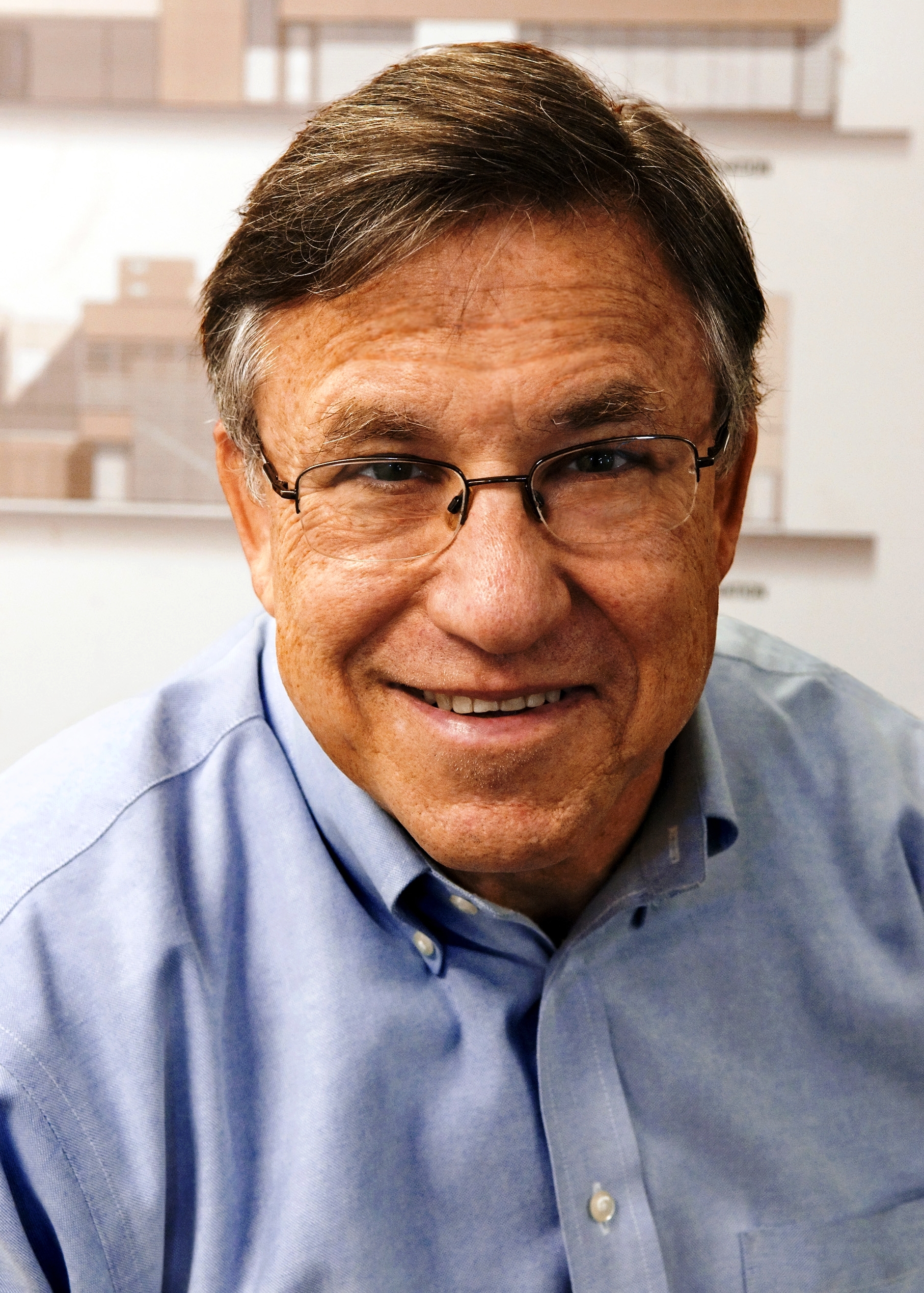By Charlie Peters
As far as congregations go, they don’t get much larger — or needier — than Rabbi Marvin Gross’ flock. But his people aren’t gathering inside a temple — or often inside anywhere, for that matter.
\For 20 years, Gross has served as the lead administrator for Union Station Homeless Services, which has grown to become one of the San Gabriel Valley’s largest social service agencies under his watch. Since 1995, the organization’s staff and operating budget has ballooned from 22 employees and less than $1 million to a 90-person operation with a budget that will approach $8 million in the next fiscal year.
But the number Gross is most concerned about is one he’s proud to report is shrinking today: Pasadena’s homeless population was tallied at 632 last year, the lowest total on record. While the number tends to fluctuate throughout the years, it’s way down from the estimated total of 1,200 in 1995, the year Gross arrived at Union Station.
“Marv has always said he considers Union Station to be his congregation,” said longtime board member Arnold Siegel. “I think it’s true and it’s rewarding, because we never lose sight of the people.”

Throughout a wide-ranging professional career spanning stints as a rabbi in San Francisco and Glendale, a deputy statewide field director for Sen. Alan Cranston’s 1986 re-election campaign and eight years as a senior executive with the Jewish Federation Council of Greater Los Angeles, Gross said his focus has always been on the people he’s served — which is no different now that his current organization helps people who are in dire need of support.
“I’ve had some different lives,” said the Evanston, Ill., native. “But if I look at it uniformly, it’s working with people to accomplish things that we as a group, whichever group it was, believed in.”
Union Station clearly believes in Gross. Hired in 1995 as the executive director — a title that changed to CEO in 2008 — Gross’ background intrigued the Union Station board members who sat on the search committee, according to former board President Gloria Pitzer.
“He wasn’t just coming in as a [traditional] nonprofit CEO, and I think that was an attraction,” said Pitzer, a partner at local law firm Palermo, Barbaro, Chinen & Pitzer. “It’s personal for him and he brings his heart to it.”
Although his hiring could be viewed as unconventional, Gross came with plenty of experience leading a large organization from his time with the Jewish Federation. And Union Station’s roots are anchored in religion, having been started by All Saints Church.

Disney senior executives — including former Studios Chairman Richard Cook (left) and company CEO Michael Eisner (right) — joined Union Station CEO Marvin Gross (second from left) for a day of volunteering at the Adult Center’s kitchen a decade ago.
“It probably wasn’t anticipated [to hire a rabbi], but once I got hired, it was never an issue. It’s allowed me to have common cause with other people of faith,” said Gross. “Almost any faith group you can name has had volunteer commitment at USHS. We are a vehicle at Union Station — they act out their faith through serving here.”
The vehicle, as Gross called it, keeps on rolling along, with Union Station planning to open the 19-bed Mar Vista Apartments next summer. According to Gross, it will be the first purpose-built, permanent housing for families in Pasadena.

Union Station supporters gather with Marvin Gross (second from left) and then-board chair Arnold Siegel (third from right) at the 1998 opening of Euclid Villa Apartments.
It’s an ambitious project, but that’s become the norm under Gross. Between opening the Euclid Villa Apartments in 1998 and providing on-site services at a residential community called Centennial Place in 2010, Union Station launched a capital campaign in 2000. A consultant’s initial feasibility study suggested the organization might be able to secure $4.5 million, but in about two years, Union Station had raised $8 million. The results were improvements to the Adult Center, as well as acquisition of property and subsequent construction of the administration building and Family Center.
Gregg von Fempe, the chief program officer at Union Station, said community commitment to the organization is, in part, a result of a collective trust in the CEO.
“We’ve been fortunate to be in the right place in the right time, but I’d stress that more importantly, we’ve had years of Marv’s guidance, foundation-building and vision to do that,” said von Fempe. “He’s kept Union Station’s reputation in the highest regard, and he’s been the face of the organization.”
Siegel, who served as the board chair a few years back and is well-versed in Pasadena’s nonprofit scene, agreed with von Fempe’s assessment.
“He’s been around so long that everybody in Pasadena knows him, and it gives the organization great credibility,” said Siegel. “He’s got the best reputation of any CEO of any nonprofit around.”
Gross has made fans internally, as well. As a 19-year employee, Director of Family Services Gil Nelson is hot on Gross’ tenure trail. Nelson, who had worked at Union Station before Gross arrived, was working for Pacific Clinics when a friend and Union Station employee named Joyce Miles began singing the praises of her new boss.
“She kept telling me how wonderful he was, and how sweet, kind and caring he was,” Nelson remembered. “She said, ‘You’d love working for him,’ and so I had to meet him.”
Within half a year, Nelson was back at Union Station — because of Gross. Back then, as he does today, Gross personally meets with every new hire to welcome him or her to what von Fempe said is “the family.”
But Gross isn’t just smiling and shaking hands during these meetings, he’s processing everything that is said. “He can name every staff member’s children; that’s just the kind of guy he is,” said Nelson. “If you walk by his office, you have to be prepared to give him a report on what your family is up to. He’s not the kind of guy that just puts in his hours and says, ‘See ya!’ He wants to know what’s going on with people.”
His grace extends beyond remembering pets’ names and children’s schools, though. A few years ago, von Fempe said, a personnel issue came up and, in a closed-door meeting, Gross and von Fempe agreed that the employee must be let go. That’s when Gross said something von Fempe never expected to come out of a CEO’s mouth.
“He looked at me and said, ‘Are we making a merciful decision?’” von Fempe said. “It really pushed me back in the chair. I’d never heard that before. I’ve had very good employers [elsewhere] but this is the best organization I’ve worked for. And in some ways, it’s because of Marv’s style.”

Marvin Gross, pictured as Elvis from the 2013 “Rockin’ for the Homeless” fundraiser, has never been afraid to let his hair down for a good cause.
Gross’ desire to serve the people goes beyond the staff, of course. In 20 years of helping the homeless, Gross can fire off detailed stories about individuals he’s known.
“My mind is flooded with their stories,” said Gross. “We’ve seen some people be extraordinarily successful and seen people begin to be successful and slip backwards. Some people never made it, but lots of people’s lives are better off today.”
While Gross won’t take the credit for that, his co-workers and dedicated volunteers don’t hesitate to identify the person driving Union Station forward.
“We all see him as a guy always looking to improve things,” said Nelson. “I don’t want to call him a dreamer, but maybe he is. He really cares about things he does, and his thing is helping people.”

